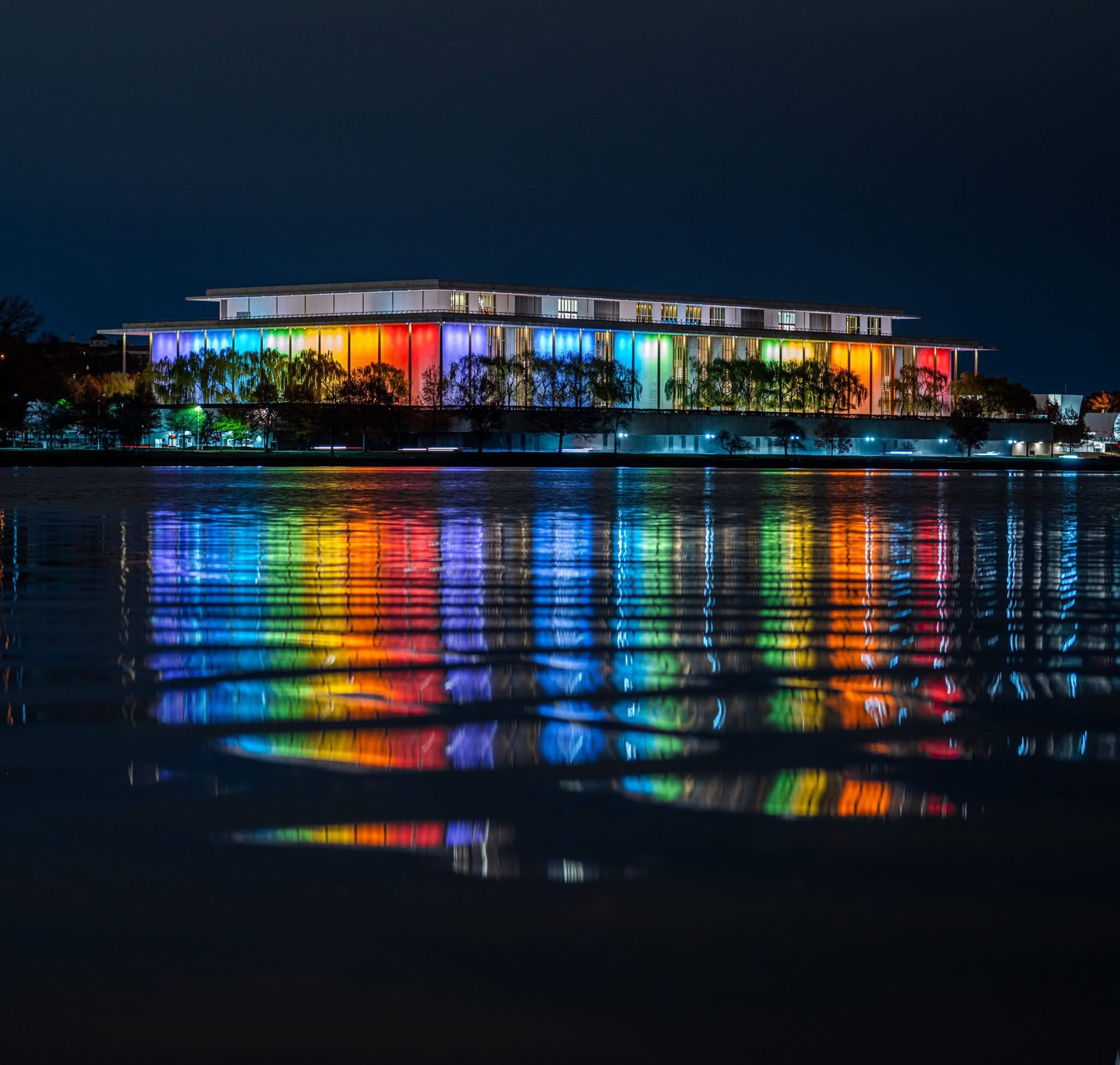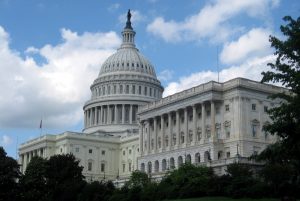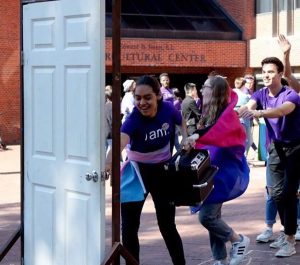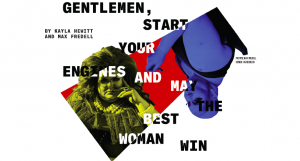Less than three weeks into his presidency, President Donald Trump ousted billionaire philanthropist David Rubenstein as chair of the Kennedy Center Board of Trustees and removed longtime president Deborah Rutter, along with numerous Democratic appointees, most of whom were appointed by former President Joe Biden.
His pick for the center’s new president? Himself.
Trump, vowing to restore “American ideals,” overhauled the Kennedy Center’s programming to align with his administration’s cultural agenda – eliminating diversity initiatives.
One target stook out in his criticism: drag performances.
“NO MORE DRAG SHOWS,” Trump wrote on Truth Social, the social media platform he created.
Several high-profile board members also resigned in protest, including television producer Shonda Rhimes, musician Ben Folds, and opera singer Renée Fleming. Trump replaced them with 14 new board members. Among them were acting Director of National Intelligence Richard Grenell, appointed as interim president; Second Lady Usha Vance; and Fox News personalities Laura Ingraham and Maria Bartiromo.
In line with efforts to eliminate so-called “woke programming,” more than 20 performances have been cut since Trump’s takeover of the Kennedy Center.
Among the cancelled events were a collaborative performance by the Gay Men’s Chorus and the National Symphony Orchestra; the post-Broadway run of “Eureka Day”, a satire about anti-vaxxers, the touring children’s musical “Finn”, widely interpreted as a queer allegory, and “NSO: A Peacock Among Pigeons”, a symphonic piece about the LGBTQ+ experience – all originally scheduled as part of the Center’s World Pride celebrations.
Other performers who voluntarily canceled their scheduled appearances at the Center included the Broadway sensation “Hamilton”, comedian Issa Rae, the rock band Low Cut Connie, and Pulitzer Prize-winning musician Rhiannon Giddens.
While many artists quietly canceled their scheduled performances at the Kennedy Center in protest, it was the very group Trump had singled out—drag performers—that led the public outcry.
Some, like drag queen Tara Hoot, publicly condemned the administration for canceling their scheduled events at the Center.
“That was my event, so I couldn’t just sit back and let him attack that. I had to put my hat in the ring,” Hoot, known for performing drag story hours at the Kennedy Center, said.
Trump’s Kennedy Center takeover highlighted a familiar pattern: drag performers are often some of the first targets of right-wing cultural attacks—and just as often, they’re leading the resistance. The latest chapter in the ongoing conflict is amplified by a broader climate of escalating hostility toward the LGBTQ community and the arts.
“Definitely for the LGBTQ community, but for so many marginalized communities – the arts have been a way of finding yourself. The Kennedy Center has long been a hub for that in D.C. Something that was a jewel is now something people are moving away from. Anytime there’s a chilling effect on the arts, I feel like that speaks so much to larger concerns in our society,” Stacie Brensilver Berman, Clinical Assistant Professor in NYU Steinhardt’s Department of Teaching and Learning and a leading scholar on LGBTQ+ history in education, said.
One notable example is the growing popularity of drag story hours, where drag performers read children’s books to young audiences in libraries, bookstores, schools, museums, and other public venues. These events, which primarily cater to children aged three to eleven, have gained widespread attention in recent years.
The official Drag Story Hours originally started in San Francisco in 2015, and now has chapters in 40 states and other countries. Such performances often use captivating characters to get children’s attention, such as dressing up as Elsa from “Frozen”, with a goal to get children more interested in reading.
“It’s really about reading books that teach kindness, bravery, friendship – you know, things like bubbles, rainbows, ribbons, dancing, creativity, and staying true to who you are. It’s about connecting with things that kids might feel, and trying to give them a way to connect to a drag show like that,” Hoot said, who’s scheduled drag story hours at the Center were abruptly canceled.
While drag story hours have long faced opposition, protests were relatively limited until recent years, when the events began drawing intensified scrutiny from conservative parents, politicians, and advocacy groups. Critics have increasingly accused the performances of “grooming” children and catering to pedophiles – a narrative that has fueled a sharp rise in hostility.
Attacks on drag story hours have ranged from armed Proud Boys members storming events in San Francisco and New York, to protests in Florida and Oregon following the scheduled appearance of an 11-year-old boy – dressed as a princess – at a story and singing event held at an Oregon pub.
In 2023, a bomb threat forced the closure of an Indianapolis bookstore that hosted monthly drag story hours, and a protest blockade in Los Angeles that same year shut down a scheduled event entirely.
“We have had to invest a lot more in just thinking about safety and security given all these attacks, which is essential, and it’s also absurd that we’re literally here in libraries and other spaces reading to children, and we’re afraid of very serious threats of violence,” Drag queen Lil Miss Hot Mess, a board member of Drag Story Hour who participated in a 2022 panel at the Kennedy Center, said.
Since, drag performers have used their growing platform to stand at the forefront of queer organizing and activism, pushing back against countless acts of violence and discrimination as well as waves of discriminatory laws passed in many states.
“When institutions bigger than Georgetown not only separate themselves from drag but actively condemn it, it sends an alarming message to the queer community – it tells us they do not want our identities in their spaces, even if our intention is to spread joy and indulge creativity,” Georgetown student Gisell Campos (CAS ’25), co-president of GUPride, said.
The drag community was particularly outspoken against Trump’s efforts, using their performances and platforms to make bold political statements and challenge the administration’s stance on drag and queer rights.
“It just felt like what I would have imagined would have been a lower priority, lower-hanging fruit, just given all the broader, bigger institutional attacks from the right,” Lil Miss Hot Mess said.
Sharing her concern, Hoot pointed to the broader political strategy behind the move.
“When you look at fascism and how people try to control the media and control art, it’s just one of those steps that Trump’s taking to try to control those places in the United States. The Republicans have to create a culture war to keep us distracted from the actual horrible things that they’re doing, like destroying the federal government and destroying services,” said Hoot.
Drag king and activist Lord Henry led a major Pride protest in D.C. in early March with support from the queer advocacy group Qommittee. The demonstration began at Washington Circle and marched to the Kennedy Center, where participants rallied outside and heard from speakers including Hoot.
“The conflation of sexual identity, gender identity, and queer art forms as one big ugly scapegoat is so obviously an attack on the queer community and on trans identity. I know I have a voice, but what’s more important is amplifying the voices of the leaders in the drag and queer community in D.C., and giving the speakers at the rally a stage,” Lord Henry said in an interview.
This fight for cultural expression in D.C. is closely tied to the city’s ongoing battle for home rule and self-governance, especially in light of legislation like the BOWSER Act, which aims to reverse D.C.’s home rule, potentially threatening the communities and art forms that thrive under it.
“Our group is very focused on protecting D.C. self-governance because if we lose it, there will be no drag in D.C., and many people I know will lose their livelihoods and become increasingly unsafe,” they added.
Given the long history of backlash against the drag community, drag performers have emerged as some of the most outspoken critics of Trump’s efforts while other Kennedy Center artists who have faced cancellations have remained comparatively silent.
Lil Miss Hot Mess explained that because the queer and drag communities have long faced attacks, they’ve developed a strong tradition of resilience and resistance—making Trump’s recent actions just another chapter in a history of standing up to adversity.
“Historically, we don’t back down easily. It’s sort of like a ‘pick on someone your own size’ kind of thing. We know what we’re up against, we know what we’re doing, and we know where our strengths are. The way that you address that is not to fight back in a violent way, or to give into their tactics, but to hold your ground – dig your heels into your own values, principles, and sense of self – and be steadfast and don’t give in,” Lil Miss Hot Mess said.
Brensilver Berman emphasized that resistance is deeply rooted in the history of queer and drag communities, who have long fought back against efforts to silence or marginalize them.
“I feel like a lot of people within the LGBTQ community are used to having to fight for everything. Every time there’s a success, there’s something new to fight for. It’s a population that recognizes that if they don’t speak up for themselves, nobody else – or not enough people – will. So if you want something to happen, you grab the reins and do it,” she said.
That resilience and determination are especially evident within the drag community.
“I think the drag queens are the bravest of us all. They always have been. They were willing to pay that price a long time ago, before we were even allowed to have drag story hours,” said Elizabeth Clement, a Professor of History at the University of Utah specializing in gender, sexuality, women’s history, and public memory.
“I think that if you’re someone willing to stand up and cross-dress, then you already have some internal bravery. You also have an internal sense of how important it is to be who you are, and to be honest and open about that,” she added.
This enduring bravery, according to Clement, helps explain why drag performers have emerged as some of the most vocal and unflinching critics of Trump’s actions. Theirs is a culture shaped by defiance, she says—one that has never waited permission to exist, and one that refused to be silent when threatened.
Campos said queer students at Georgetown have united in response to Trump’s recent actions, recognizing them as part of a long history of attempts to suppress queer performance and art,and highlighting the enduring power of such expression to resist oppression.
“Performance art has tight connections to the queer community. The queer community has a lot to say, and performance art says a lot. It’s a circle of power and resistance that will only continue to turn. We’ve made it work before, and we will continue to do so,” they said.
In the end, what’s unfolding at the Kennedy Center isn’t just a battle over who gets to read to children or perform on stage. It’s a referendum on who gets to belong in public life – whose stories are deemed worthy to be told, and whose existence is treated as a threat.
As Lil Miss Hot Mess explained, these attacks are part of a broader pattern.
“It really is about attacking the arts, the humanities, creativity, and intellectualism more broadly to squash critical thinking and squash different forms of creative expression as a way of flexing national power,” she said.
Lord Henry notes that drag performers have always understood this, which is why they’ve never just been entertainers; they’ve been truth-tellers, protestors, and activists. Their art is political because their lives are political.
“Drag artists are thought leaders and culture creators. They push back. They cause controversy,” said Lord Henry.
So as the curtain falls on drag programming at one of America’s most iconic cultural institutions, the real question isn’t whether drag belongs on stages like the Kennedy Center. It’s who gets to decide what American culture is – and whether our stages will reflect the full spectrum of voices that make this country what it is.
Because drag isn’t the threat. Silence is.





